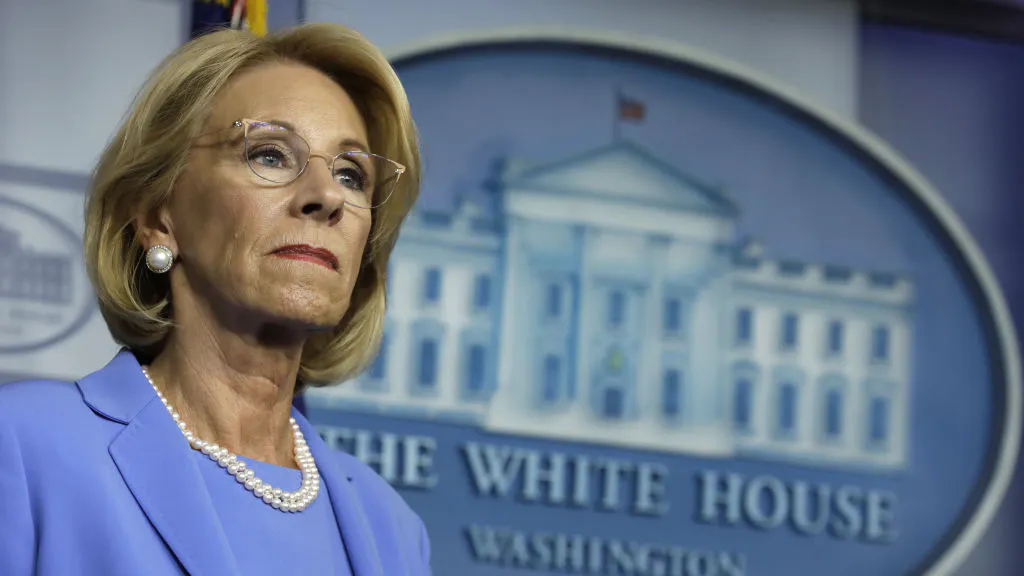On September 2, the president of Princeton University, Christopher Eisgruber, issued a mea culpa in a letter in which he argued that Princeton still evinced racism, writing, “Racism and the damage it does to people of color nevertheless persist at Princeton as in our society … racist assumptions from the past also remain embedded in structures of the University itself.”
On Wednesday, the Department of Education fired off a letter to Princeton University declaring that the university would be investigated, stating it was “concerned Princeton’s nondiscrimination and equal opportunity assurances in its Program Participation Agreements from at least 2013 to the present may have been false.”
The letter, which was obtained and published by The Washington Examiner, continued, “Based on the facts, the Secretary of Education may consider measures against Princeton for false Program Participation Agreement nondiscrimination assurances, including an action to recover funds. Also, she may consider measures against Princeton for making substantial misrepresentations about the nature of its educational program, including a fine proceeding. … the serious, even shocking nature of Princeton’s admissions compel the Department to move with all appropriate speed.”
The Examiner noted, “Such an admission from Eisgruber raises concerns that Princeton has been receiving tens of millions of dollars of federal funds in violation of Title VI of the Civil Rights Act of 1964, which declares that ‘no person in the United States shall, on the ground of race, color, or national origin, be excluded from participation in, be denied the benefits of, or be subjected to discrimination under any program or activity receiving Federal financial assistance.’”
In July, Eisgruber condemned Princeton professor of classics Joshua Katz over a column in which Katz slammed the Black Lives Matter movement on campus. Katz wrote of a “Faculty Letter” sent to Eisgruber and other senior administrators at Princeton University:
… there are dozens of proposals that, if implemented, would lead to civil war on campus and erode even further public confidence in how elite institutions of higher education operate. Some examples: “Reward the invisible work done by faculty of color with course relief and summer salary” and “Faculty of color hired at the junior level should be guaranteed one additional semester of sabbatical” and “Provide additional human resources for the support of junior faculty of color.” Let’s leave aside who qualifies as “of color,” though this is not a trivial point. It boggles my mind that anyone would advocate giving people—extraordinarily privileged people already, let me point out: Princeton professors—extra perks for no reason other than their pigmentation.
Katz added, “… Not incidentally, if you believe anti-blackness to be foundational, it is not a stretch to imagine that you will teach the 1619 Project as dogma.”
Katz quoted this demand in the letter: “Acknowledge, credit, and incentivize anti-racist student activism. Such acknowledgment should, at a minimum, take the form of reparative action, beginning with a formal public University apology to the members of the Black Justice League and their allies.”
Katz commented, “The Black Justice League, which was active on campus from 2014 until 2016, was a small local terrorist organization that made life miserable for the many (including the many black students) who did not agree with its members’ demands. Recently I watched an ‘Instagram Live’ of one of its alumni leaders, who—emboldened by recent events and egged on by over 200 supporters who were baying for blood—presided over what was effectively a Struggle Session against one of his former classmates. It was one of the most evil things I have ever witnessed, and I do not say this lightly.”
Eisgruber lashed out, “While free speech permits students and faculty to make arguments that are bold, provocative, or even offensive, we all have an obligation to exercise that right responsibly. Joshua Katz has failed to do so, and I object personally and strongly to his false description of a Princeton student group as a ‘local terrorist organization.’”
“By ignoring the critical distinction between lawful protest and unlawful violence,” Eisgruber continued, “Dr. Katz has unfairly disparaged members of the Black Justice League, students who protested and spoke about controversial topics but neither threatened nor committed any violent acts.”

.png)
.png)

